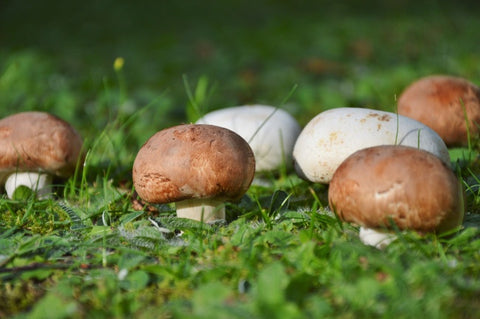Knowledge from Olle Garden Bed: The Impact of Mushroom Compost on Different Vegetable Plants
Vegetables are an essential part of our daily diet, rich in vitamins, minerals, and fiber, playing a crucial role in maintaining our health. In vegetable cultivation, preserving and improving soil fertility are key factors for ensuring healthy crop growth. In recent years, mushroom compost has gained significant attention as an organic fertilizer that not only enhances soil quality but also has positive effects on different types of vegetable plants. This article will focus on discussing the influence of mushroom compost on leafy greens and fruits and vegetables. The following content also has some reference value for raised garden beds.

What is Mushroom Compost?
Mushroom compost refers to the organic fertilizer produced by blending and fermenting mushroom waste with other organic materials. It typically consists of mushroom mycelium, straw, bran, and poultry manure. During the composting process, mushroom mycelium breaks down organic waste and releases a range of beneficial substances for plant growth, such as organic acids, enzymes, and trace elements. Mushroom compost offers various advantages, including improving soil structure, enhancing water and nutrient retention capacity, and increasing soil microbial activity. As a result, it has become a widely used organic fertilizer.
The Impact of Mushroom Compost on Leafy Greens
Leafy greens, such as spinach, lettuce, and kale, are vegetables primarily consumed for their leaves. Mushroom compost has a positive influence on the cultivation of leafy greens. Firstly, it improves soil structure, increases soil porosity, and enhances soil aeration and water-holding capacity, which facilitates root growth and nutrient absorption in leafy green plants. Secondly, the organic acids and enzymes present in mushroom compost promote the decomposition and release of organic matter in the soil, providing essential nutrients required for leafy greens. Additionally, the trace elements found in mushroom compost, such as zinc, copper, and manganese, play vital roles in the growth, development, and nutrient metabolism of leafy greens. Overall, mushroom compost contributes to the improvement of soil conditions, stimulates leafy green growth, and enhances yield and quality.
The Impact of Mushroom Compost on Fruits and Vegetables
Fruits and vegetables, including tomatoes, peppers, and cucumbers, are plants where the edible part is predominantly the fruit. Mushroom compost also exerts positive effects on the cultivation of fruits and vegetables. Firstly, the organic matter in mushroom compost provides abundant nutrients for fruit and vegetable plants, promoting their growth and development. Secondly, the microorganisms present in mushroom compost decompose organic matter in the soil, releasing nutrients essential for plant growth and improving soil fertility. Additionally, mushroom compost improves soil structure and water retention, facilitating root growth and water uptake in fruits and vegetables. Consequently, the use of mushroom compost increases yield, enhances fruit quality, and improves taste.
Mushroom compost plays a significant role as an organic fertilizer in vegetable cultivation. It positively influences the growth and development of leafy greens by improving soil conditions, enhancing nutrient supply, and promoting plant growth. Similarly, in fruits and vegetables, mushroom compost provides nutrients, improves soil structure, and enhances water retention, resulting in increased yield and improved fruit quality. However, it is essential to consider the proper compost ratio and factors such as moisture and temperature during the composting process to ensure optimal results. Further research on the use of mushroom compost in vegetable cultivation is warranted to optimize yield and quality, promoting the advancement of sustainable agriculture.
Common Questions:
Can mushroom compost be used in potting mixes?
Yes, mushroom compost can be used in potting mixes. However, it is best to mix it with other materials such as regular garden soil or peat moss, as it can be quite rich and may overpower some plants if used alone.
Is mushroom compost safe for all vegetables?
While many vegetables benefit from mushroom compost, some plants may not respond well to it due to its slightly alkaline nature. Testing the pH of the soil and understanding the specific requirements of the plants is always a good idea.

Can mushroom compost burn plants?
Well-composted mushroom compost should not burn plants. However, like any compost, it is nutrient-rich, and excessive use may lead to nutrient imbalances in the soil.
How much mushroom compost should I use in my garden?
A good practice is to apply a layer of 2-3 inches of mushroom compost on the surface of the garden and then mix it into the top few inches of soil. However, the quantity may vary depending on the specific plants and soil requirements.
Does mushroom compost attract pests?
While it is rich in organic matter, mushroom compost itself does not attract pests. However, like any organic material, if mismanaged or used in excess, it may attract unwanted insects or rodents. Proper gardening practices and pest management strategies should keep your garden healthy and pest-free.
